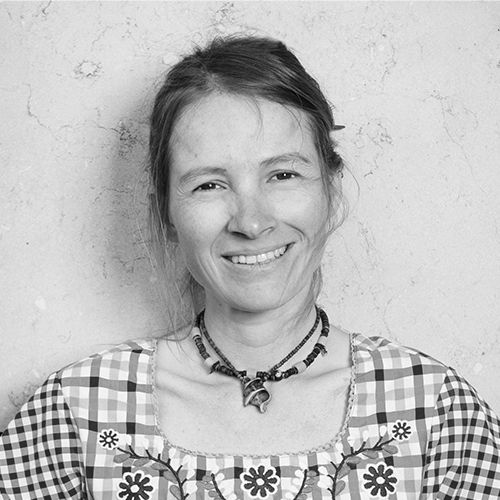
Sports and Exercise Medicine and Health
Sleep and athletic performance
22.11.2024, 11:00 CET
Adequate and sufficient sleep is essential for daytime brain functioning and emotion regulation, the immune system and memory consolidation as well as regulating metabolism and daytime physical performance. Regarding sleep and recovery, athletes can be seen as a vulnerable group as their sleep requirements are often not met due to various sports-related factors such as training schedules, competition travels or heavy training loads. In recent years, the importance of sleep in athletes has gained increased recognition both in research and practice. This webinar will provide insights into the functions of sleep and the importance of adequate sleep quality for peak sport performance. Different methods for monitoring sleep quality and measuring objective and subjective sleep parameters in athletes will be presented and discussed. We will give an overview over the prevalence.
Chaired by

Prof. Dr. Anne-Marie Elbe
Full Professor of Sport Psychology, Leipzig University, Germany
ECSS Scientific Board Member

Patricia Frytz
PhD student and research assistant, Leipzig University, Faculty of Sport Science, Germany
Speakers
 Assoc. Prof. Kerstin Hoedlmoser
Assoc. Prof. Kerstin HoedlmoserUniversity of Salzburg, Centre for cognitive neuroscience, Austria
"Sleep functions and its importance for sport performance"
Sleep is essential for physiological and psychological wellbeing. Every sport requires both muscular and cognitive recovery and only a well-rested athlete is capable of peak performance. On average, people spend a third of their lives sleeping. It is recommended that you adjust your sleep to your individual optimal sleep duration and circadian phase. Although the function of sleep is not yet known, several processes may be sleep-dependent. One function may be related to the recovery of the body and the central nervous system. For athletes in particular, the importance of sleep for a functioning immune system should be emphasised. In addition, the consolidation of memory and newly learned knowledge during sleep is scientifically proven. Finally, sleep deprivation makes us more emotionally aroused and sensitive to stressful events. Sleep appears to be essential for our ability to cope with emotional stress in everyday life but also during competitions.
 Patricia Frytz, MSc BA
Patricia Frytz, MSc BAPhD student and research assistant
Leipzig University, Faculty of Sport Science, Germany
"Methods for monitoring sleep in athletes"
The complexity of assessing sleep in athletes is compounded by the dynamic interplay of various factors, making it challenging to establish clear guidelines for optimal sleep practices. Consequently, also various methodologies exist for the quantification of sleep. Self-report instruments are one way to assess sleep quality. Besides questionnaires like the Pittsburgh Sleep Quality Index (PSQI) or the Epworth Sleepiness Scale (ESS), it is recommended to use sleep diaries as they provide detailed insights into sleep patterns. Objective measurements include polysomnographie (PSG) as the gold standard of sleep assessment or actigraphy for monitoring athletes’ sleep in natural environments. This presentation will discuss the strengths and weaknesses of each method and will depict exemplary studies on how these methods can be integrated with each other. An outlook will be given on how athletes can benefit most from monitoring their sleep and how novel methods such as multi-resolutional convolutional neural network (MCNN) can provide new insights.
 Assoc. Prof. Daniel Erlacher
Assoc. Prof. Daniel ErlacherUniversity of Bern, Institute of Sport Science, Switzerland
"The prevalence of sleep disorders among Swiss elite athletes – an online survey"
In recent years, many studies have examined sleep habits within the realm of professional sports. However, the occurrence of clinically significant sleep disorders in these populations has been infrequently studied. This research focuses on the prevalence of sleep disorders among elite athletes in Switzerland. Using an online survey, we assessed the prevalence of major sleep disorders in a large group of 2,297 Swiss elite athletes (1,066 women, 1,231 men), with an average age of 22.05 ± 7.53 years. The following prevalence rates were identified: 7.5% for insomnia, 3.4% for sleep apnea, 1.2% for hypersomnia, 0.2% for circadian rhythm disorders, 8.7% for NREM parasomnia, 6.3% for nightmares and 6.6% for restless legs syndrome. The presentation will address relevant factors related to these sleep disorders.
 Dr. Mathieu Nedelec
Dr. Mathieu NedelecFrench Institute of Sport (INSEP), Laboratory Sport, Expertise and Performance, Paris, France
"Sleep intervention strategies for athletes"
In elite sport, athletes are frequently exposed to various situations and conditions that can interfere with sleep, potentially leading to sleep restriction, incomplete recovery and underperformance. We will outline efficient and individualised sleep intervention strategies that are tailored to the constraints of elite sport to limit stressors and enhance the psychological and physiological sleep functions that are considered critical to optimal recovery. Specifically, we will present the benefits for athletes of sleep extension and napping, sleep hygiene strategies (e.g. high-heat capacity mattress, light, relaxation) and recovery strategies used in elite sport (e.g. cold water immersion).